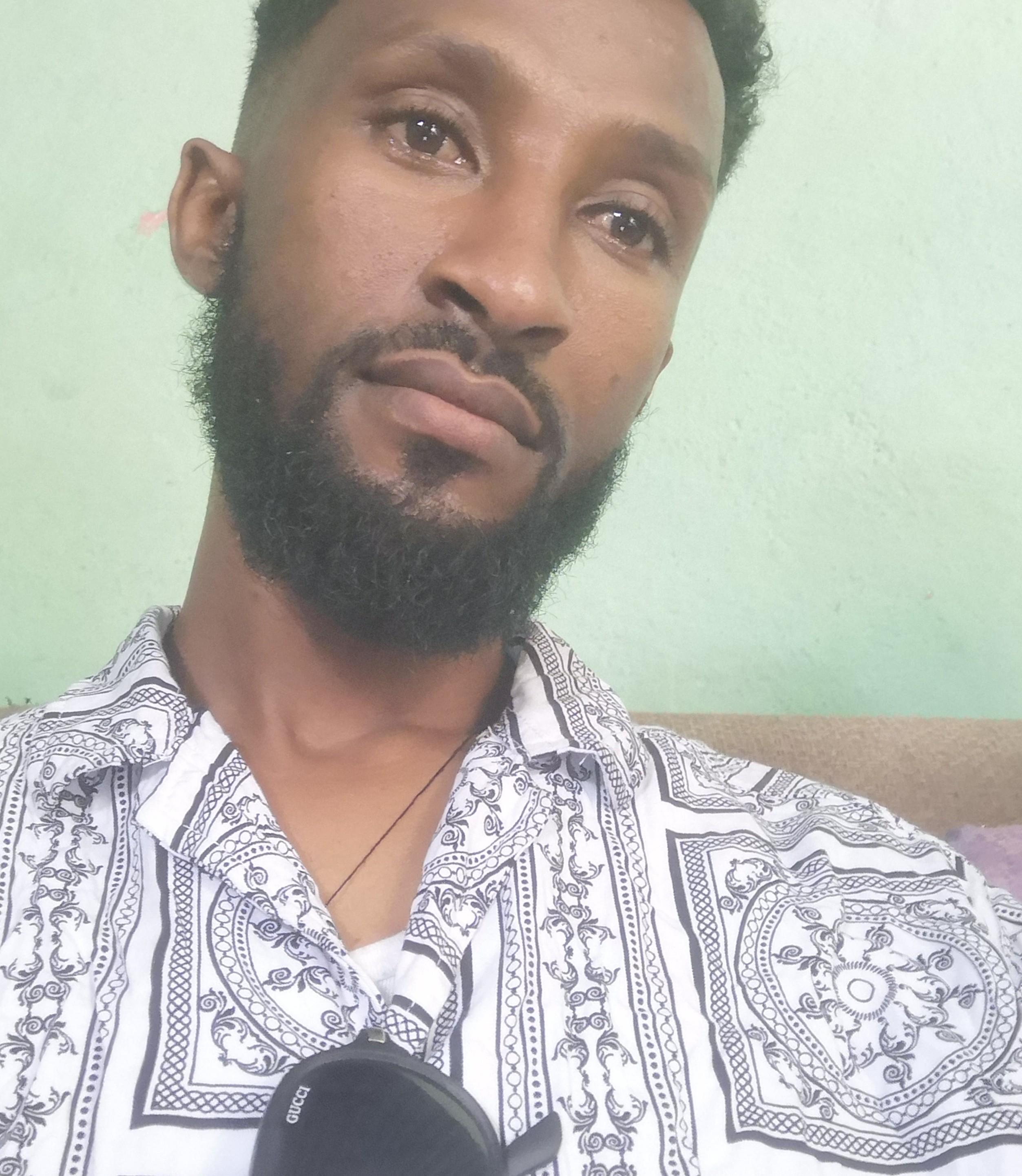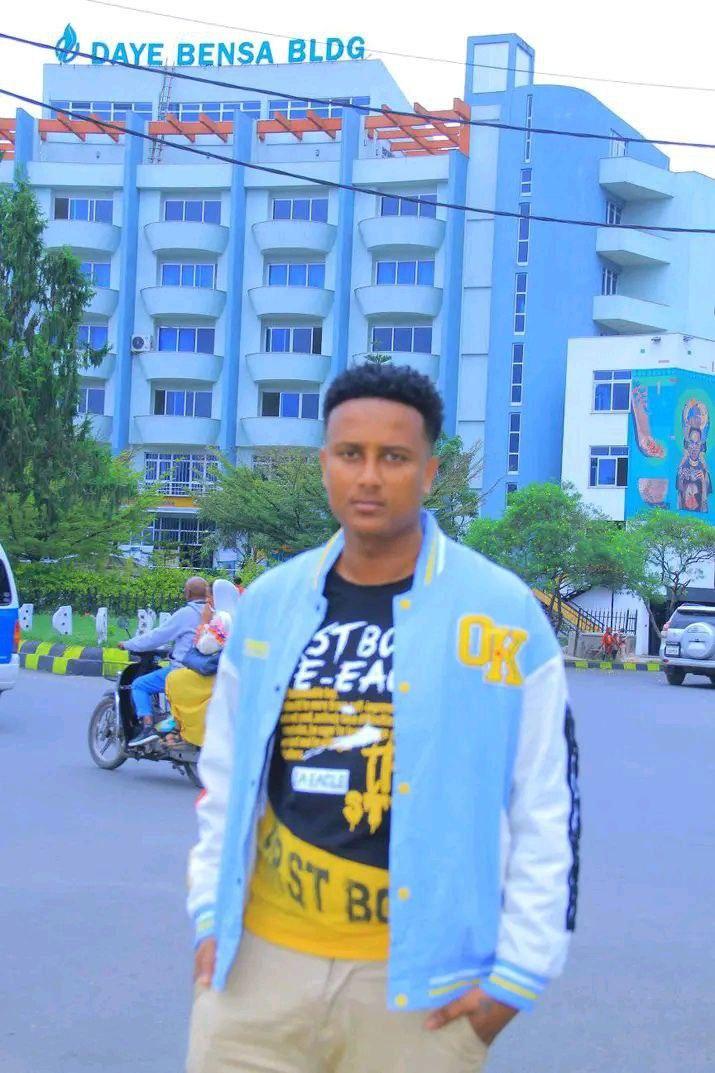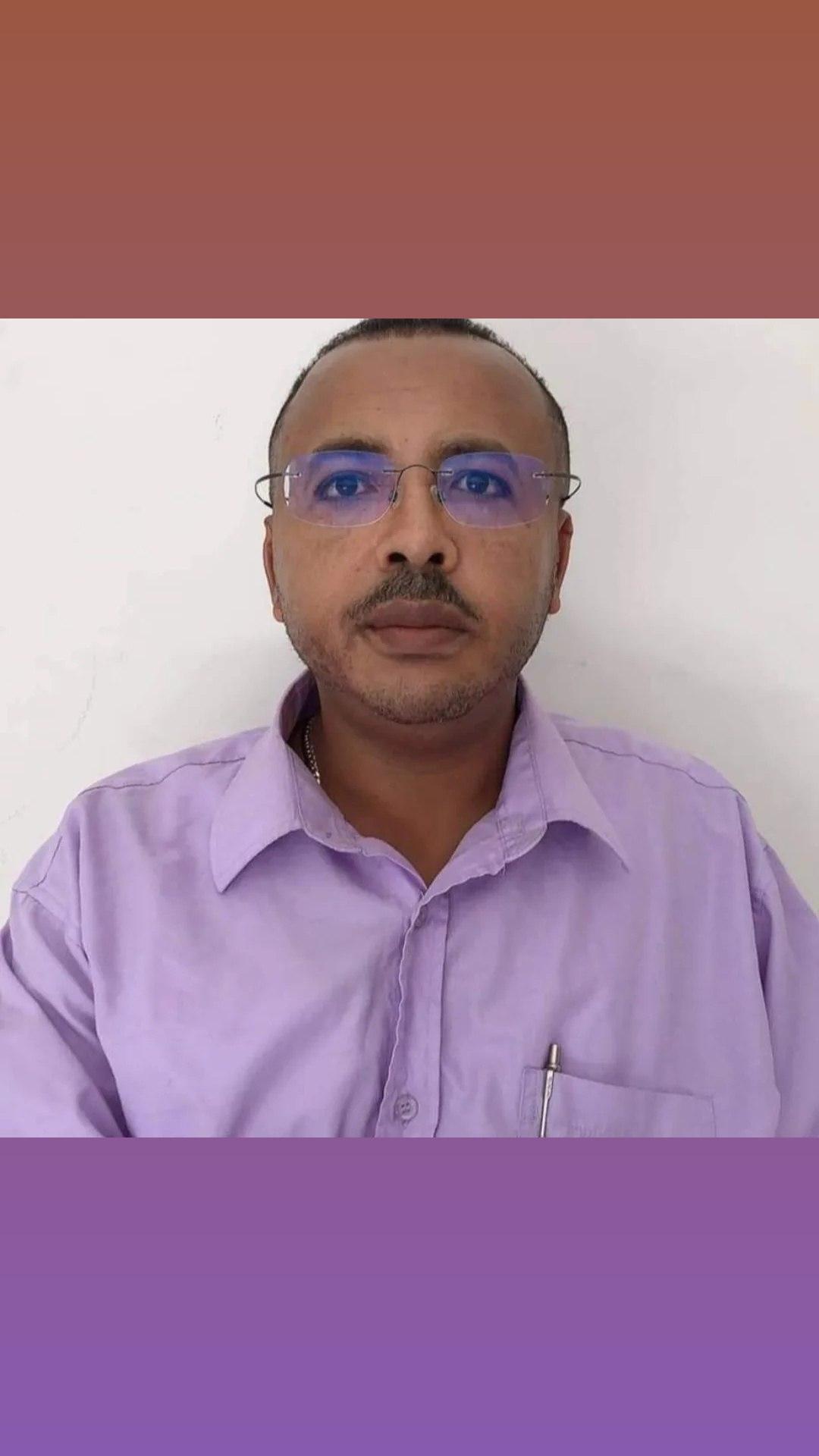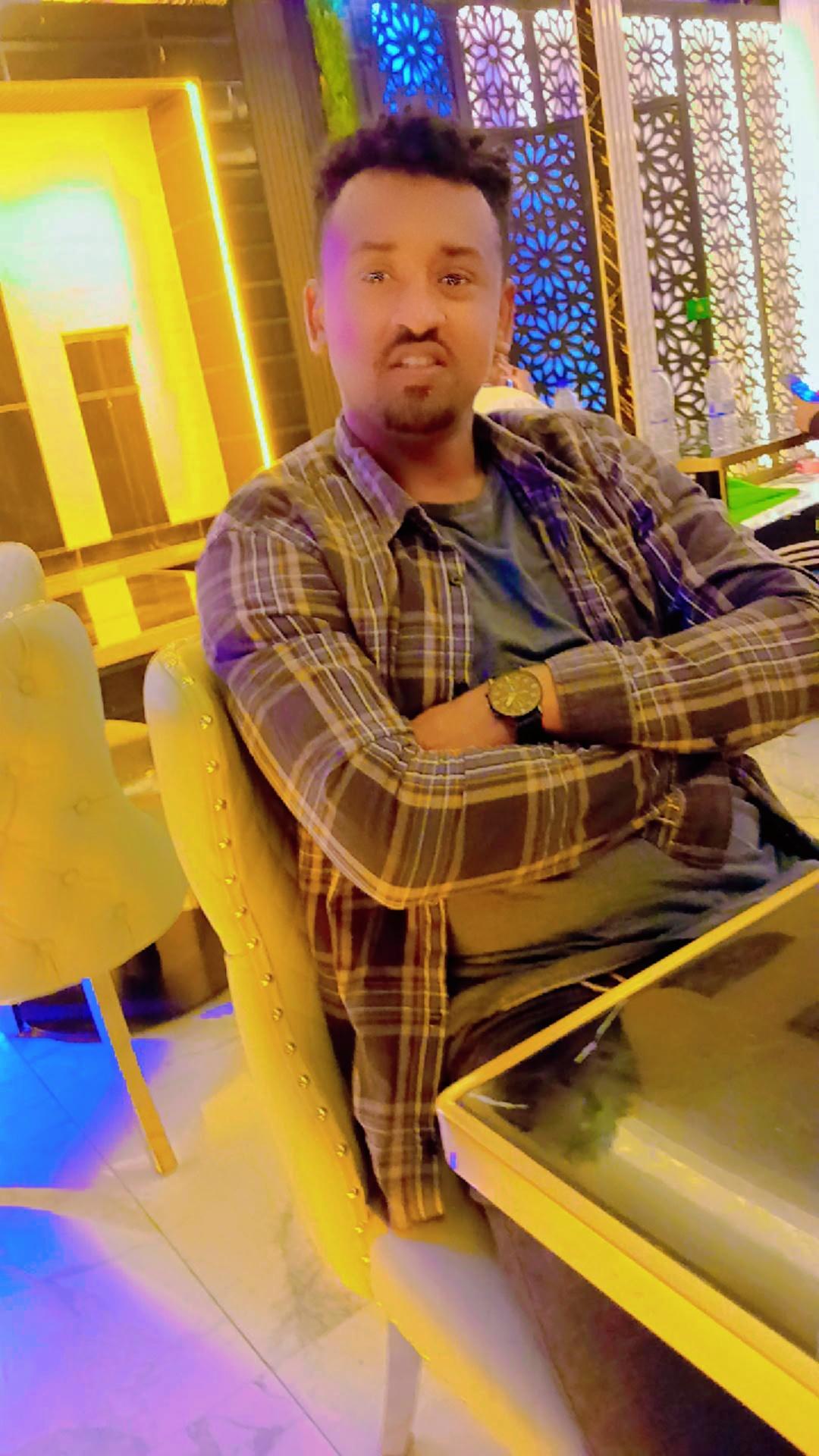0 Комментарии
0 Поделились
555 Просмотры
0 предпросмотр

Каталог
Знакомьтесь и заводите новых друзей
-
Войдите, чтобы отмечать, делиться и комментировать!
-
1 Комментарии 0 Поделились 517 Просмотры 0 предпросмотр
-
0 Комментарии 0 Поделились 487 Просмотры 0 предпросмотр
-
0 Комментарии 0 Поделились 475 Просмотры 0 предпросмотр
-
0 Комментарии 0 Поделились 397 Просмотры 0 предпросмотр
-
HelloooHellooo1 Комментарии 0 Поделились 445 Просмотры 0 предпросмотр2

-
1 Комментарии 0 Поделились 384 Просмотры 0 предпросмотр
-
The people of Eritrea deserve my heartfelt congratulations on their 34th anniversary of independence. Eritrea's tenacity is demonstrated by its hard-won sovereignty. As a young scholar hoping for a future for the Horn of Africa based on respect for one another, shared security, and transformative cooperation, I write not only to congratulate but also to offer a critical and honest analysis of the arguments you have made. This is because I am a fellow citizen of this region, which has been burdened by decades of regrettable conflict, profound mistrust, and exclusionary politics.
Having seen your Minister of Information's English translation, I carefully read your Independence Day keynote address. I found its tone and framing to be really uncomfortable, despite the fact that it was full of historical memory and patriotism. Instead of providing a positive outlook for the future, the speech frequently employs a limited, grievance-focused perspective to interpret the complicated realities of our region.
You start off by praising the greatness of independence, sovereignty, and unity, and with good reason—these are principles deserving of passionate support. However, your assertion of Eritrea's unrelenting success is uncomfortably accompanied by the general atmosphere of mistrust, persecution, and internal quiet that characterizes your government. If unity is created in the crucible of dissension, shattered, and voices silenced, how can it be true? When a nation's youth are constantly drafted into wars over which they have no say and no hope, is sovereignty really exercised?
You depict the world stage in harsh terms, including the ascent and decline of superpowers, the shifting geopolitical landscape, and the schemes of outside powers vying for dominance. I do agree with you that nationalist great-power politics and the breakdown of multilateral institutions bring both extraordinary opportunities and threats to Africa. Your hope that chaos may lead to opportunity and your acknowledgment of Africa's marginalization in the evolving global order are both spot-on. Africa now has the responsibility and chance to demonstrate its agency via unambiguous, united commitment as global powers turn inward and embrace inward-looking nationalism. However, in order to attain true self-determination, African governments must rise above complaints and catchphrases and embrace cooperation, creativity, and moral leadership. While your message correctly highlights the flaws in the global order, such as the weaponization of finance and ongoing structural oppression, Your Excellency runs the risk of withdrawing into a stronghold of isolation and blame-blaming, losing a crucial opportunity to promote greater unity and vision.
In addition, you mentioned overseas adversaries plotting against Eritrea and urged "holding the yoke firm" amid these forces' ramblings—concentrating on internal issues and directing your people's efforts toward progress. These are admirable goals, no doubt. However, you run the risk of ignoring a threat that is closer to home if you portray Eritrea as a fortress under siege, constantly on guard against a procession of adversaries, both visible and hidden. Is it not frequently the case that the siege that imprisons from inside is the greatest? A state may actually be fighting against the dreams and ambitions of its own citizens if it believes that disloyalty lurks behind every shadow.
Your outlook on Eritrea's future, which is centered on infrastructural development, industrialization, and human capital mobilization, seems encouraging. However, what sort of victory is this if the cost of this "inexorable progress" is the denial of political plurality and the subjection of human conscience? When the masses are gathered into ruthless wars—conflicts that are not motivated by justice or reason but rather by resentful mistrust between leaders who are blinded by their own inflated egos—who really wins? The question you dare not ask is even more pointed: How has Eritrea contributed to the very cycles of poverty, reliance, and stagnation that you so bitterly regret? This kind of emphasis necessitates unwavering honesty—acknowledging suppressed voices, unheard complaints, and the widespread fear that stifles accountability, creativity, and free thought. As long as this tyranny persists, the country's actual potential will continue to be limited.
Beyond internal issues, however, our region faces a more subdued danger that is disguised as defending liberation. Your speech frequently downplays Eritrea's involvement in regional conflict while presenting it as only a victim of international interference. Eritrea has fueled instability under your leadership by arming organizations and even deploying troops straight into neighboring nations. Eritrean troops crossed the border and took part in documented atrocities during the recent battle in Ethiopia's Tigray, for which you have shown no regret. These were gestures of co-authorship in cruelty rather than defense. It would be a risky rewriting of history to dismiss these acts as the product of covert proxies. Sovereignty must entail taking responsibility for one's actions if it has any meaning.
Ethiopia's own problems—contested identities and poor governance—are our responsibility to bear, not yours to use as a weapon.
There are significant issues with your remarks regarding Ethiopia because they are based on simplistic and biased descriptions. Your oversimplification of Ethiopia's federal constitutional system with terms like "Oromummaa ideology" or "Cushitic-Semitic antagonism" and your dismissal of Ethiopia's complicated democratic struggles as merely foreign-directed performances ignore Ethiopia's internal diversity, valid grievances, and sovereign agency in its constitutional experimentation. Invoking and weaponizing sensitive identification markers that feed violent and exclusionary cycles is incompatible with claiming neutrality.
Your speech's portrayal of "Oromummaa" as a threat is reminiscent of the dog whistles used by regressive elites and resurrects a threat-making statecraft technique that has been a recurring tactic in Ethiopian government for generations. This securitization logic has its roots in Ethiopian statecraft, which has long framed the Oromo people—the nation's biggest ethnic group—as an existential threat to national cohesion. In order to defend exclusion, repression, and violent assimilation, this controversial old trope—originally written by the medieval monk Abba Bahrey—has been embellished by European missionaries and maintained as an article of religion by succeeding administrations since the 16th century.
In reality, what you portray as criticism is support for an exclusionary logic of statecraft—the resuscitation of divisive historical themes that have long served as justification for the securitization of Oromo identity expression. This recurring trend has turned valid Oromo political and cultural claims into alleged security threats—a terrible cliché that you, as a liberation warrior, have regrettably adopted.
To be clear, we are responsible for carrying Ethiopia's internal problems—contested identities and poor governance—rather than using them as a weapon. While we embrace critical regional discourse, we oppose paternalism masquerading as analysis. We won't outsource our future, even if we make mistakes. This generation demands accountability, honesty, and space; we don't want lectures from the man who created the bloodshed of the past.
Similarly, you lose out on an opportunity for regional cooperation when you portray Ethiopia's quest for Red Sea access as an act of brinkmanship. It is neither novel nor unethical for Ethiopia to want to secure access to marine facilities. It is motivated by the logic of regional interdependence and economic survival rather than a desire to weaken Eritrea. You claim that hunger is eyeing the Red Sea. Let me ask you, though: what man wouldn't look for a key if he were locked in his house with no way out? A nation of more than 120 million people is behaving in accordance with strategic necessity when it seeks dependable, sovereign-linked access to the sea. More significantly, a thriving Ethiopia with diverse trade routes may help its neighbors—including Eritrea—by boosting employment, investment, and connection. What is needed are corridors of trust rather than barriers of opposition, and cooperation rather than suspicion. It would be a misreading of the opportunity if we framed this regional imperative as conspiratorial. With its underutilized ports, Eritrea can benefit diplomatically and economically by tying itself into the larger regional growth. It is not necessary for the Red Sea to develop into a new arena of conflict. Alternatively, it can serve as a common platform for mutual benefit and prosperity.
Given that its youth are subject to repression and indefinite conscription, Eritrea's claim to sovereignty must never be used as a justification for tyranny or as a shield to suppress dissent.
Your description of the Sudanese crisis followed a similar path. You are right to lament its destruction, but blaming external sabotage for nearly all of the civil war ignores the bigger picture. Decades of authoritarian government, regional marginalization, elite rivalries, and unfulfilled promises are the main causes of Sudan's crisis. Although foreign interference does occur, using the Sudanese as mere pawns is risky. More significantly, Eritrea's own position in the region is not impartial, whether it be as a partisan, broker, or observer. Those who claim to oppose intervention while doing it with impunity should also be held accountable for their actions in our region.
Your Excellency, I don't write to minimize Eritrea's goals or sovereignty or to downplay the significance of independence and rule of law. However, isolation should not be confused with integrity, nor should sovereignty be used as a cover for a siege mentality. Even when you use grievances a lot in your speech, condemning foreign or Western subversion without real reflection is insufficient. Accountability to the truth, our history, and our people is the first step toward true agency. Given that its youth are subject to repression and indefinite conscription, Eritrea's claim to sovereignty must never be used as a justification for tyranny or as a shield to suppress dissent. As puppets in a mistrust-driven statecraft, our generation—Ethiopian and Eritrean alike—has been caught in cycles of silence and fear, which we refuse to inherit or continue. The Horn of Africa cannot afford to lose ten more years to suspicion and accusation. Cooperation based on openness, sincere communication, and the guts to reestablish confidence is essential for progress.
Our Ethiopian and Eritrean history are intricately intertwined. We have experienced sacrifice, treachery, and conflict, but we have also experienced hope, kinship, and the prospect of peace. Our people's desire for a different future was demonstrated by the brief reunion in 2018. That need still exists because we still lack the guts to confront each other honestly, not because it was naïve.
It is time to put an end to mistrust and start the arduous process of regional integration with integrity and foresight. A politics of grievance must give way to one of mutual gain. Leadership that listens as much as it talks, seeks clarification rather than assigning blame, and offers trust rather than accusations is necessary for the future. I reject perpetual grievance as our guiding philosophy as a young African scholar. We cannot let resentment to be our only motivation, even though Africa has been mistreated and interfered with.
But despite these obstacles, our common desire for dignity and peace illuminates the way forward. Coexistence is achievable, as demonstrated by the brief rapprochement in 2018. We wish to live as neighbors free to shape our own destinies rather than as enemies tormented by past wrongs. This will need bravery: letting go of a zero-sum mentality, establishing trust via open communication, and shifting from blaming to sharing responsibility. We, the young of the Horn of Africa, demand better because the region deserves it. We don't want to carry on our elders' conflicts or the silences they enforced. We envision a free-flowing zone where borders signify collaboration rather than conflict and where history guides us rather than confines us.
Let independence serve as a promise for the future rather than merely a legacy of the past; in this future, Eritrea's power will be determined by the freedom, dignity, and prosperity it ensures for its people, not by the number of barracks it constructs.
With a spirit of hope,The people of Eritrea deserve my heartfelt congratulations on their 34th anniversary of independence. Eritrea's tenacity is demonstrated by its hard-won sovereignty. As a young scholar hoping for a future for the Horn of Africa based on respect for one another, shared security, and transformative cooperation, I write not only to congratulate but also to offer a critical and honest analysis of the arguments you have made. This is because I am a fellow citizen of this region, which has been burdened by decades of regrettable conflict, profound mistrust, and exclusionary politics. Having seen your Minister of Information's English translation, I carefully read your Independence Day keynote address. I found its tone and framing to be really uncomfortable, despite the fact that it was full of historical memory and patriotism. Instead of providing a positive outlook for the future, the speech frequently employs a limited, grievance-focused perspective to interpret the complicated realities of our region. You start off by praising the greatness of independence, sovereignty, and unity, and with good reason—these are principles deserving of passionate support. However, your assertion of Eritrea's unrelenting success is uncomfortably accompanied by the general atmosphere of mistrust, persecution, and internal quiet that characterizes your government. If unity is created in the crucible of dissension, shattered, and voices silenced, how can it be true? When a nation's youth are constantly drafted into wars over which they have no say and no hope, is sovereignty really exercised? You depict the world stage in harsh terms, including the ascent and decline of superpowers, the shifting geopolitical landscape, and the schemes of outside powers vying for dominance. I do agree with you that nationalist great-power politics and the breakdown of multilateral institutions bring both extraordinary opportunities and threats to Africa. Your hope that chaos may lead to opportunity and your acknowledgment of Africa's marginalization in the evolving global order are both spot-on. Africa now has the responsibility and chance to demonstrate its agency via unambiguous, united commitment as global powers turn inward and embrace inward-looking nationalism. However, in order to attain true self-determination, African governments must rise above complaints and catchphrases and embrace cooperation, creativity, and moral leadership. While your message correctly highlights the flaws in the global order, such as the weaponization of finance and ongoing structural oppression, Your Excellency runs the risk of withdrawing into a stronghold of isolation and blame-blaming, losing a crucial opportunity to promote greater unity and vision. In addition, you mentioned overseas adversaries plotting against Eritrea and urged "holding the yoke firm" amid these forces' ramblings—concentrating on internal issues and directing your people's efforts toward progress. These are admirable goals, no doubt. However, you run the risk of ignoring a threat that is closer to home if you portray Eritrea as a fortress under siege, constantly on guard against a procession of adversaries, both visible and hidden. Is it not frequently the case that the siege that imprisons from inside is the greatest? A state may actually be fighting against the dreams and ambitions of its own citizens if it believes that disloyalty lurks behind every shadow. Your outlook on Eritrea's future, which is centered on infrastructural development, industrialization, and human capital mobilization, seems encouraging. However, what sort of victory is this if the cost of this "inexorable progress" is the denial of political plurality and the subjection of human conscience? When the masses are gathered into ruthless wars—conflicts that are not motivated by justice or reason but rather by resentful mistrust between leaders who are blinded by their own inflated egos—who really wins? The question you dare not ask is even more pointed: How has Eritrea contributed to the very cycles of poverty, reliance, and stagnation that you so bitterly regret? This kind of emphasis necessitates unwavering honesty—acknowledging suppressed voices, unheard complaints, and the widespread fear that stifles accountability, creativity, and free thought. As long as this tyranny persists, the country's actual potential will continue to be limited. Beyond internal issues, however, our region faces a more subdued danger that is disguised as defending liberation. Your speech frequently downplays Eritrea's involvement in regional conflict while presenting it as only a victim of international interference. Eritrea has fueled instability under your leadership by arming organizations and even deploying troops straight into neighboring nations. Eritrean troops crossed the border and took part in documented atrocities during the recent battle in Ethiopia's Tigray, for which you have shown no regret. These were gestures of co-authorship in cruelty rather than defense. It would be a risky rewriting of history to dismiss these acts as the product of covert proxies. Sovereignty must entail taking responsibility for one's actions if it has any meaning. Ethiopia's own problems—contested identities and poor governance—are our responsibility to bear, not yours to use as a weapon. There are significant issues with your remarks regarding Ethiopia because they are based on simplistic and biased descriptions. Your oversimplification of Ethiopia's federal constitutional system with terms like "Oromummaa ideology" or "Cushitic-Semitic antagonism" and your dismissal of Ethiopia's complicated democratic struggles as merely foreign-directed performances ignore Ethiopia's internal diversity, valid grievances, and sovereign agency in its constitutional experimentation. Invoking and weaponizing sensitive identification markers that feed violent and exclusionary cycles is incompatible with claiming neutrality. Your speech's portrayal of "Oromummaa" as a threat is reminiscent of the dog whistles used by regressive elites and resurrects a threat-making statecraft technique that has been a recurring tactic in Ethiopian government for generations. This securitization logic has its roots in Ethiopian statecraft, which has long framed the Oromo people—the nation's biggest ethnic group—as an existential threat to national cohesion. In order to defend exclusion, repression, and violent assimilation, this controversial old trope—originally written by the medieval monk Abba Bahrey—has been embellished by European missionaries and maintained as an article of religion by succeeding administrations since the 16th century. In reality, what you portray as criticism is support for an exclusionary logic of statecraft—the resuscitation of divisive historical themes that have long served as justification for the securitization of Oromo identity expression. This recurring trend has turned valid Oromo political and cultural claims into alleged security threats—a terrible cliché that you, as a liberation warrior, have regrettably adopted. To be clear, we are responsible for carrying Ethiopia's internal problems—contested identities and poor governance—rather than using them as a weapon. While we embrace critical regional discourse, we oppose paternalism masquerading as analysis. We won't outsource our future, even if we make mistakes. This generation demands accountability, honesty, and space; we don't want lectures from the man who created the bloodshed of the past. Similarly, you lose out on an opportunity for regional cooperation when you portray Ethiopia's quest for Red Sea access as an act of brinkmanship. It is neither novel nor unethical for Ethiopia to want to secure access to marine facilities. It is motivated by the logic of regional interdependence and economic survival rather than a desire to weaken Eritrea. You claim that hunger is eyeing the Red Sea. Let me ask you, though: what man wouldn't look for a key if he were locked in his house with no way out? A nation of more than 120 million people is behaving in accordance with strategic necessity when it seeks dependable, sovereign-linked access to the sea. More significantly, a thriving Ethiopia with diverse trade routes may help its neighbors—including Eritrea—by boosting employment, investment, and connection. What is needed are corridors of trust rather than barriers of opposition, and cooperation rather than suspicion. It would be a misreading of the opportunity if we framed this regional imperative as conspiratorial. With its underutilized ports, Eritrea can benefit diplomatically and economically by tying itself into the larger regional growth. It is not necessary for the Red Sea to develop into a new arena of conflict. Alternatively, it can serve as a common platform for mutual benefit and prosperity. Given that its youth are subject to repression and indefinite conscription, Eritrea's claim to sovereignty must never be used as a justification for tyranny or as a shield to suppress dissent. Your description of the Sudanese crisis followed a similar path. You are right to lament its destruction, but blaming external sabotage for nearly all of the civil war ignores the bigger picture. Decades of authoritarian government, regional marginalization, elite rivalries, and unfulfilled promises are the main causes of Sudan's crisis. Although foreign interference does occur, using the Sudanese as mere pawns is risky. More significantly, Eritrea's own position in the region is not impartial, whether it be as a partisan, broker, or observer. Those who claim to oppose intervention while doing it with impunity should also be held accountable for their actions in our region. Your Excellency, I don't write to minimize Eritrea's goals or sovereignty or to downplay the significance of independence and rule of law. However, isolation should not be confused with integrity, nor should sovereignty be used as a cover for a siege mentality. Even when you use grievances a lot in your speech, condemning foreign or Western subversion without real reflection is insufficient. Accountability to the truth, our history, and our people is the first step toward true agency. Given that its youth are subject to repression and indefinite conscription, Eritrea's claim to sovereignty must never be used as a justification for tyranny or as a shield to suppress dissent. As puppets in a mistrust-driven statecraft, our generation—Ethiopian and Eritrean alike—has been caught in cycles of silence and fear, which we refuse to inherit or continue. The Horn of Africa cannot afford to lose ten more years to suspicion and accusation. Cooperation based on openness, sincere communication, and the guts to reestablish confidence is essential for progress. Our Ethiopian and Eritrean history are intricately intertwined. We have experienced sacrifice, treachery, and conflict, but we have also experienced hope, kinship, and the prospect of peace. Our people's desire for a different future was demonstrated by the brief reunion in 2018. That need still exists because we still lack the guts to confront each other honestly, not because it was naïve. It is time to put an end to mistrust and start the arduous process of regional integration with integrity and foresight. A politics of grievance must give way to one of mutual gain. Leadership that listens as much as it talks, seeks clarification rather than assigning blame, and offers trust rather than accusations is necessary for the future. I reject perpetual grievance as our guiding philosophy as a young African scholar. We cannot let resentment to be our only motivation, even though Africa has been mistreated and interfered with. But despite these obstacles, our common desire for dignity and peace illuminates the way forward. Coexistence is achievable, as demonstrated by the brief rapprochement in 2018. We wish to live as neighbors free to shape our own destinies rather than as enemies tormented by past wrongs. This will need bravery: letting go of a zero-sum mentality, establishing trust via open communication, and shifting from blaming to sharing responsibility. We, the young of the Horn of Africa, demand better because the region deserves it. We don't want to carry on our elders' conflicts or the silences they enforced. We envision a free-flowing zone where borders signify collaboration rather than conflict and where history guides us rather than confines us. Let independence serve as a promise for the future rather than merely a legacy of the past; in this future, Eritrea's power will be determined by the freedom, dignity, and prosperity it ensures for its people, not by the number of barracks it constructs. With a spirit of hope,0 Комментарии 0 Поделились 465 Просмотры 0 предпросмотр -
The Coffee Ceremony in Ethiopia: An Intricate Cultural Custom
A fascinating and ancient custom that goes beyond just sipping coffee is the Ethiopian coffee ritual. The event, which is rich in symbolism and steeped in history, honors Ethiopian hospitality, community, and culture. We shall examine the history, elements, and importance of the Ethiopian coffee ritual in the lives of Ethiopians and coffee enthusiasts alike in this blog article.
Since Ethiopia is not only the origin of coffee but also has a long history of growing and consuming the popular beverage, coffee is very important to Ethiopian culture. A distinctive and engaging event, the Ethiopian coffee ceremony highlights the country's profound love of coffee and the value of building relationships through common experiences.
You will get a fresh respect for this ancient custom and its function in creating and preserving solid community ties by learning about the finer points of the Ethiopian coffee ceremony.
Ethiopian Coffee Ceremony History
Many people consider Ethiopia to be the origin of coffee, and there is an intriguing tale around it. A young shepherd called Kaldi saw that his goats were unable to sleep after eating berries from a certain tree, according to local legend. He told a neighboring monastery about his finding since he was curious about the consequences of these enigmatic fruit. During their extended periods of meditation, monks discovered that the berries kept them awake. Coffee drinking started at this point, and word of this energizing beverage quickly spread.
The Coffee Ceremony's Development
Over time, the Ethiopian coffee ceremony has changed to accommodate various settings and social situations while keeping its fundamental components.
The coffee ceremony was and continues to be an essential aspect of everyday life in rural Ethiopia. Communities and families would congregate in a certain spot, sometimes under a big tree, to chat and deepen their links while enjoying a cup of freshly made coffee. The ritual provided a forum for news sharing, conversation about local happenings, and the sharing of generational knowledge.
The coffee ceremony changed somewhat as Ethiopia became more urbanized and developed to accommodate the changing way of life. Nowadays, the ritual is often performed inside in metropolitan settings, such as in families' living rooms or in coffee shops that have adopted the custom. The ceremony's core is still the same in spite of these modifications: it's still a chance for people to gather, exchange tales, and spend time together while enjoying the robust tastes of Ethiopian coffee.
The Ethiopian Coffee Ceremony's Elements
From the processing of raw coffee beans to the pouring of the finished brew, the Ethiopian coffee ceremony is a multi-stage, detailed, and difficult procedure. Let's take a closer look at each stage.
Getting ready
The host, who is often a woman, roasts green coffee beans over a charcoal brazier to start the ritual. The beans emit a tantalizing scent as they turn from green to a deep brown hue, establishing the mood for the ritual. To make sure the beans roast properly, the host uses a menkeshkesh, a traditional roasting instrument, or a flat pan. With the use of a woven straw fan, the host cools the beans when they have reached the correct hue.
A traditional wooden mortar and pestle known as a mukecha and zenezena, respectively, are then used to grind the roasted coffee beans. The perfume of freshly ground coffee fills the air as the host grinds the beans to a fine consistency.
The host concurrently prepares the jebena, a traditional clay coffee pot with a long, thin spout and a distinctive bulbous form, while grinding the beans. After adding water, the jebena is set on the charcoal brazier to warm.
Making beer
The host carefully adds the finely ground coffee to the jebena once the water has reached the boiling point. The coffee grinds soak in the hot water to impart their rich taste to the beverage, starting the brewing process.
Three separate brewing rounds, each with its own name and significance, are part of the Ethiopian coffee ritual. The strongest and most delicious coffee comes from the first round, known as Abol. Since the same coffee grounds are used for brewing, Tona, the second round, is softer. Lastly, Bereka, the third round, is the lightest and marks the conclusion of the ritual. The development of these rounds symbolizes the participants' growing rapport and dialogue.
Serving
Small, handleless cups known as sini or cini—which are sometimes embellished with vibrant colors or designs—are used to serve the brewed coffee. In order to get the ideal ratio of coffee to froth, the host carefully fills each cup.
For the coffee ceremony to be successful, a talented host is necessary. The host must pour the coffee from the jebena into the sini precisely so that there is a constant flow of liquid without any coffee grinds. A well-executed pour enhances the ceremony's overall pleasure and is a credit to the host's ability and experience.
Coffee is often served with classic foods like bread, popcorn, or roasted barley. In addition to improving the coffee-drinking experience, these accompaniments highlight Ethiopian hospitality. During the ritual, incense is sometimes lit to enhance the coffee's fragrance and create a nice mood.
Every element of the Ethiopian coffee ceremony is rich in custom and meaning, demonstrating the country's strong love of coffee and the value placed on building relationships with others.
The Ceremony's Cultural and Social Significance
People get the chance to unite and strengthen their bonds throughout the ritual. It acts as a reminder of the value of in-person communication. People talk about local issues, exchange tales, and make new friends as they congregate over the coffee.
Ethiopian culture is deeply rooted in storytelling, and the ritual offers the ideal setting for exchanging stories of wisdom, folklore, and daily life. Participants' comprehension of one another and the world around them grows as they converse.
The Coffee Ceremony's Symbolism
In addition to a cup of coffee, the host is giving their friendship, trust, and respect by encouraging visitors to take part in the ritual. The significance of showing warmth and giving to visitors is further highlighted by the ceremony's careful planning and attention to detail.
The coffee ceremony is also spiritually significant to many Ethiopians. The coffee ritual is often used as a time for prayer and introspection, and the Ethiopian Orthodox Church is very important to its adherents. A homage to religious customs, the incense burning throughout the wedding fosters a sense of solemnity.The Coffee Ceremony in Ethiopia: An Intricate Cultural Custom A fascinating and ancient custom that goes beyond just sipping coffee is the Ethiopian coffee ritual. The event, which is rich in symbolism and steeped in history, honors Ethiopian hospitality, community, and culture. We shall examine the history, elements, and importance of the Ethiopian coffee ritual in the lives of Ethiopians and coffee enthusiasts alike in this blog article. Since Ethiopia is not only the origin of coffee but also has a long history of growing and consuming the popular beverage, coffee is very important to Ethiopian culture. A distinctive and engaging event, the Ethiopian coffee ceremony highlights the country's profound love of coffee and the value of building relationships through common experiences. You will get a fresh respect for this ancient custom and its function in creating and preserving solid community ties by learning about the finer points of the Ethiopian coffee ceremony. Ethiopian Coffee Ceremony History Many people consider Ethiopia to be the origin of coffee, and there is an intriguing tale around it. A young shepherd called Kaldi saw that his goats were unable to sleep after eating berries from a certain tree, according to local legend. He told a neighboring monastery about his finding since he was curious about the consequences of these enigmatic fruit. During their extended periods of meditation, monks discovered that the berries kept them awake. Coffee drinking started at this point, and word of this energizing beverage quickly spread. The Coffee Ceremony's Development Over time, the Ethiopian coffee ceremony has changed to accommodate various settings and social situations while keeping its fundamental components. The coffee ceremony was and continues to be an essential aspect of everyday life in rural Ethiopia. Communities and families would congregate in a certain spot, sometimes under a big tree, to chat and deepen their links while enjoying a cup of freshly made coffee. The ritual provided a forum for news sharing, conversation about local happenings, and the sharing of generational knowledge. The coffee ceremony changed somewhat as Ethiopia became more urbanized and developed to accommodate the changing way of life. Nowadays, the ritual is often performed inside in metropolitan settings, such as in families' living rooms or in coffee shops that have adopted the custom. The ceremony's core is still the same in spite of these modifications: it's still a chance for people to gather, exchange tales, and spend time together while enjoying the robust tastes of Ethiopian coffee. The Ethiopian Coffee Ceremony's Elements From the processing of raw coffee beans to the pouring of the finished brew, the Ethiopian coffee ceremony is a multi-stage, detailed, and difficult procedure. Let's take a closer look at each stage. Getting ready The host, who is often a woman, roasts green coffee beans over a charcoal brazier to start the ritual. The beans emit a tantalizing scent as they turn from green to a deep brown hue, establishing the mood for the ritual. To make sure the beans roast properly, the host uses a menkeshkesh, a traditional roasting instrument, or a flat pan. With the use of a woven straw fan, the host cools the beans when they have reached the correct hue. A traditional wooden mortar and pestle known as a mukecha and zenezena, respectively, are then used to grind the roasted coffee beans. The perfume of freshly ground coffee fills the air as the host grinds the beans to a fine consistency. The host concurrently prepares the jebena, a traditional clay coffee pot with a long, thin spout and a distinctive bulbous form, while grinding the beans. After adding water, the jebena is set on the charcoal brazier to warm. Making beer The host carefully adds the finely ground coffee to the jebena once the water has reached the boiling point. The coffee grinds soak in the hot water to impart their rich taste to the beverage, starting the brewing process. Three separate brewing rounds, each with its own name and significance, are part of the Ethiopian coffee ritual. The strongest and most delicious coffee comes from the first round, known as Abol. Since the same coffee grounds are used for brewing, Tona, the second round, is softer. Lastly, Bereka, the third round, is the lightest and marks the conclusion of the ritual. The development of these rounds symbolizes the participants' growing rapport and dialogue. Serving Small, handleless cups known as sini or cini—which are sometimes embellished with vibrant colors or designs—are used to serve the brewed coffee. In order to get the ideal ratio of coffee to froth, the host carefully fills each cup. For the coffee ceremony to be successful, a talented host is necessary. The host must pour the coffee from the jebena into the sini precisely so that there is a constant flow of liquid without any coffee grinds. A well-executed pour enhances the ceremony's overall pleasure and is a credit to the host's ability and experience. Coffee is often served with classic foods like bread, popcorn, or roasted barley. In addition to improving the coffee-drinking experience, these accompaniments highlight Ethiopian hospitality. During the ritual, incense is sometimes lit to enhance the coffee's fragrance and create a nice mood. Every element of the Ethiopian coffee ceremony is rich in custom and meaning, demonstrating the country's strong love of coffee and the value placed on building relationships with others. The Ceremony's Cultural and Social Significance People get the chance to unite and strengthen their bonds throughout the ritual. It acts as a reminder of the value of in-person communication. People talk about local issues, exchange tales, and make new friends as they congregate over the coffee. Ethiopian culture is deeply rooted in storytelling, and the ritual offers the ideal setting for exchanging stories of wisdom, folklore, and daily life. Participants' comprehension of one another and the world around them grows as they converse. The Coffee Ceremony's Symbolism In addition to a cup of coffee, the host is giving their friendship, trust, and respect by encouraging visitors to take part in the ritual. The significance of showing warmth and giving to visitors is further highlighted by the ceremony's careful planning and attention to detail. The coffee ceremony is also spiritually significant to many Ethiopians. The coffee ritual is often used as a time for prayer and introspection, and the Ethiopian Orthodox Church is very important to its adherents. A homage to religious customs, the incense burning throughout the wedding fosters a sense of solemnity.2 Комментарии 0 Поделились 472 Просмотры 0 предпросмотр1
-
1 Комментарии 0 Поделились 383 Просмотры 0 предпросмотр
© 2025 Afla Dating አፍላ Dating
 Russian
Russian











